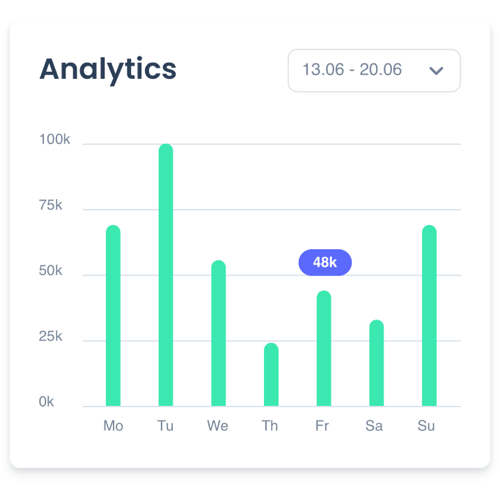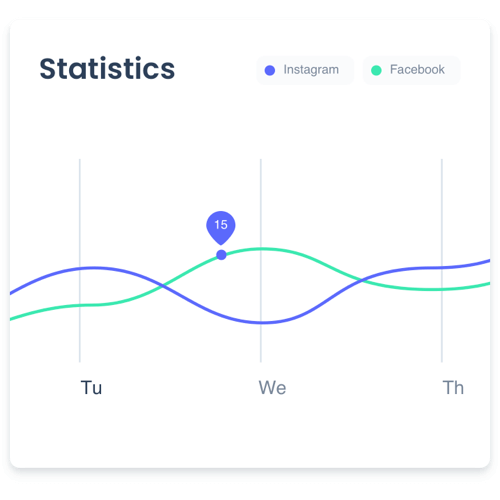Search Engine Marketing Consulting
Your Go-To Search Engine Marketing Agency.
Get found online and grow your business with Search Engine Marketing Services from the experts at Generation One. We help small businesses, entrepreneurs, and startups grow their online presence and make more money.
World-Class Search Engine Marketing Consultancy

SEM Consulting and Digital Marketing Solutions Search Engine Marketing Consulting for Small Businesses
Boost Website Traffic with Search Engine Marketing Consulting


SEM Consulting

SEM Solutions

Strategy & Execution
Search Engine Marketing Company
Search Engine Marketing Consulting: Expert Advice for Marketers & Business Owners
Let our experts help you with your search engine marketing strategy. Talk to us about landing page optimization, ad copywriting, funnel building or optimization, or any other aspects of search engine marketing. We have a long history and can help you to get the most out of your investment.

Search Engine Marketing Services
Digital Marketing Solutions
Search Engine Marketing Consultant
Best Search Engine Marketing Services
We are a powerful online marketing firm that specializes in dominating with the latest search engine marketing techniques (and adjacent service offerings) including organic search engine marketing, landing page design, pay per click advertising, funnel building, conversion optimization and email marketing.
Search Engine Marketing Company
Professional Search Engine Marketing Services
Search Engine Marketing Consulting - SEO and SEM from a Pro! We're a practiced and proven digital marketing agency. We provide SEO and SEM services for businesses throughout the US and beyond.

Are you ready to unlock the full potential of your online presence and drive targeted traffic to your business? Look no further than Generation One, the leading search marketing agency that specializes in helping businesses like yours achieve exceptional results in the digital realm.
At Generation One, we understand the importance of search marketing in today’s competitive landscape. Whether you’re a small startup or a well-established enterprise, our team of experts is dedicated to crafting personalized search marketing strategies that align with your unique goals and drive measurable results.
Why choose Generation One as your trusted search marketing partner? Here’s what sets us apart:
Proven Expertise: With years of experience in the industry, our team of search marketing professionals has a deep understanding of the ever-changing search landscape. We stay ahead of the curve by keeping up with the latest trends, strategies, and algorithm updates to ensure your business stays ahead of the competition.
Tailored Strategies: We believe in a customized approach to search marketing. We take the time to understand your business, target audience, and goals, allowing us to create tailored strategies that deliver maximum impact. Our solutions are designed to drive relevant traffic, increase conversions, and boost your overall online visibility.
Comprehensive Services: We offer a wide range of search marketing services to cater to your specific needs. From search engine optimization (SEO) and pay-per-click (PPC) advertising to content marketing and social media advertising, we have the expertise to deliver integrated solutions that drive results across multiple channels.
Data-Driven Insights: Our approach is grounded in data and analytics. We believe that data holds the key to unlocking success in search marketing. Our team utilizes advanced tracking tools and analytics platforms to monitor the performance of your campaigns, extract valuable insights, and make data-backed decisions for continuous improvement.
Transparent Communication: We value open and transparent communication with our clients. Throughout the partnership, we provide regular updates, reports, and actionable insights to keep you informed about the progress and success of your search marketing campaigns. We believe in collaboration and consider you an integral part of the team.
ROI-Focused Approach: Our ultimate goal is to deliver a strong return on investment (ROI) for your search marketing efforts. We combine our expertise with strategic optimization techniques to ensure that every dollar you invest in search marketing delivers tangible results for your business.
Dedication to Success: We are driven by the success of our clients. Your goals become our goals, and we work tirelessly to achieve them. We are committed to delivering excellence and exceeding your expectations at every step of the journey.
Don’t let your business get lost in the vast online landscape. Partner with Generation One, and let us harness the power of search marketing to drive targeted traffic, boost your online visibility, and propel your business to new heights of success.
Contact us today to schedule a consultation and take the first step toward search marketing excellence with Generation One. Together, we can unlock the true potential of your online presence and drive your business forward.
What is search engine marketing (SEM), and how does it differ from search engine optimization (SEO)?
In the ever-expanding digital landscape, businesses strive to maximize their online visibility and drive targeted traffic to their websites. Search Engine Marketing (SEM) and Search Engine Optimization (SEO) are two powerful strategies that can help achieve these goals. While SEM and SEO share a common objective of improving website visibility on search engine results pages (SERPs), they differ in their approaches and techniques. In this section, we will explore what SEM and SEO are, how they differ, and how they can work together to enhance online marketing efforts.
What is Search Engine Optimization (SEO)?
Search Engine Optimization (SEO) refers to the process of optimizing a website to improve its organic (non-paid) search engine rankings. The primary goal of SEO is to increase website visibility, attract relevant traffic, and enhance user experience. SEO involves various strategies, including keyword research, on-page optimization, technical optimization, content creation, link building, and user engagement.
SEO focuses on optimizing both the website's on-page elements (such as meta tags, headings, and content) and off-page elements (such as backlinks and social signals) to improve its search engine rankings. The ultimate aim is to earn higher organic rankings, generate targeted traffic, and establish a strong online presence for the long term.
What is Search Engine Marketing (SEM)?
Search Engine Marketing (SEM) encompasses paid advertising campaigns that aim to increase a website's visibility on search engine results pages. Unlike SEO, which focuses on organic rankings, SEM involves bidding on keywords and placing advertisements in prominent positions within the search engine results.
SEM typically involves using platforms like Google Ads or Bing Ads to create pay-per-click (PPC) campaigns. Advertisers bid on keywords related to their business, and their ads appear when users search for those keywords. Advertisers are charged only when users click on their ads, making SEM a cost-effective strategy that allows businesses to target specific keywords and reach their desired audience.
SEM also includes other forms of paid advertising such as display ads, remarketing campaigns, and shopping ads. These ads appear on websites, social media platforms, and other online channels, allowing businesses to extend their reach beyond search engine results.
Key Differences between SEM and SEO
Cost: SEO is a long-term investment that requires time, effort, and expertise but doesn't involve direct payment for search engine visibility. On the other hand, SEM involves paying for ads based on clicks or impressions, making it a more immediate and measurable approach.
Placement: SEO focuses on achieving higher organic rankings through optimization efforts, while SEM allows businesses to secure prominent placements at the top of the search results through paid ads.
Timeframe: SEO is a long-term strategy that requires consistent optimization and patience to see results. It may take months to see significant improvements in organic rankings. In contrast, SEM can deliver immediate results once campaigns are set up and activated.
Targeting: SEO targets organic traffic based on relevant keywords, while SEM provides the opportunity to target specific keywords, demographics, locations, and other parameters with paid ads. This makes SEM highly targeted and allows businesses to reach their desired audience more precisely.
Flexibility: SEO requires continuous monitoring, optimization, and adaptation to changes in search engine algorithms. SEM offers greater flexibility and control as businesses can adjust their ad campaigns in real-time, modify bids, test different ad creatives, and target specific audiences.
Click-through Rates (CTR): While organic search results generally receive more clicks than paid ads, SEM ads can still drive significant traffic due to their prominent placements and visibility.
Integration of SEM and SEO
Although SEM and SEO differ in their approaches, they can complement each other when used together strategically. By combining SEM and SEO efforts, businesses can maximize their online visibility and increase the likelihood of attracting targeted traffic. Here are a few ways they can work together:
Keyword Insights: SEM campaigns can provide valuable insights into high-performing keywords that can be incorporated into SEO strategies. By analyzing the success of SEM campaigns, businesses can identify relevant keywords that generate conversions and optimize their website content accordingly.
Test and Refine: SEM allows businesses to test different ad variations, landing pages, and calls-to-action. The insights gained from these tests can be used to optimize website content and improve user engagement, benefiting both SEM and SEO efforts.
Brand Exposure: Paid ads appearing alongside organic search results can increase brand visibility and credibility. Users may be more likely to click on organic results if they have seen the brand's paid ads, leading to increased organic traffic.
Seasonal Campaigns: SEM is particularly useful for running targeted campaigns during peak seasons or special events. By complementing these campaigns with optimized SEO content, businesses can maximize their visibility and capture a larger share of the market.
Conclusion
While Search Engine Optimization (SEO) and Search Engine Marketing (SEM) have distinct differences, both are essential components of a comprehensive online marketing strategy. SEO focuses on long-term organic visibility and user experience, while SEM provides immediate visibility through paid advertising. By understanding the unique benefits and strategies of each approach, businesses can leverage both SEM and SEO to increase their online visibility, attract targeted traffic, and achieve their marketing goals. Whether through organic rankings or paid advertising, the ultimate objective is to connect businesses with their target audience and drive growth in the competitive online landscape.
Why is SEM important for businesses looking to increase their online visibility and drive targeted traffic?
In today's highly competitive online landscape, businesses are constantly seeking effective strategies to increase their online visibility, attract targeted traffic, and achieve their marketing goals. Search Engine Marketing (SEM) has emerged as a powerful tool that can help businesses accomplish these objectives. In this section, we will explore the importance of SEM for businesses and how it can enhance their online visibility and drive targeted traffic. Let's delve into the world of SEM and discover its benefits.
Understanding Search Engine Marketing (SEM)
Search Engine Marketing (SEM) refers to the practice of promoting websites and increasing their visibility on search engine results pages (SERPs) through paid advertising. SEM encompasses various tactics, including pay-per-click (PPC) campaigns, display ads, remarketing campaigns, and shopping ads. The primary platforms for SEM are Google Ads and Bing Ads, which allow businesses to create and manage their paid advertising campaigns.
The Importance of SEM for Businesses
Immediate Online Visibility
One of the key advantages of SEM is its ability to provide immediate online visibility. Unlike Search Engine Optimization (SEO), which takes time to show results, SEM allows businesses to instantly place their ads at the top of search engine results. This visibility enables businesses to quickly reach their target audience and drive traffic to their websites.
Targeted Advertising
SEM offers businesses the opportunity to target specific keywords, demographics, locations, and other parameters with their paid ads. This level of targeting ensures that businesses are reaching the right audience at the right time. By displaying ads to users actively searching for relevant keywords, businesses can increase the chances of attracting high-quality, targeted traffic to their websites.
Increased Brand Exposure
SEM provides businesses with increased brand exposure on search engine results pages. Even if users do not click on the ads, the mere presence of the brand in the top positions enhances brand visibility and credibility. This exposure creates brand recognition, improves brand recall, and increases the likelihood of users choosing the brand when they are ready to make a purchase or engage with the business.
Measurable Results and ROI
SEM campaigns offer measurable results, allowing businesses to track the performance of their ads and measure their return on investment (ROI). With advanced analytics tools, businesses can monitor the number of clicks, impressions, conversions, and other key performance indicators. This data provides valuable insights into the effectiveness of the campaigns and enables businesses to optimize their strategies for better results.
Flexibility and Control
SEM provides businesses with flexibility and control over their advertising campaigns. Advertisers can easily modify their ad copy, adjust bidding strategies, test different ad variations, and target specific audiences. This level of control allows businesses to respond to market trends, optimize their campaigns in real-time, and make data-driven decisions to improve their advertising efforts.
Cost-Effectiveness
SEM offers a cost-effective advertising solution as businesses only pay when users click on their ads (pay-per-click model). This means that businesses are only charged when there is potential customer engagement. Additionally, businesses can set daily budgets, cap their spending, and optimize their bids to maximize the value and effectiveness of their ad spend.
Conclusion
In today's digital age, Search Engine Marketing (SEM) plays a crucial role in helping businesses increase their online visibility, attract targeted traffic, and achieve their marketing objectives. SEM provides businesses with immediate visibility, targeted advertising, increased brand exposure, measurable results, flexibility, and cost-effectiveness. By leveraging SEM effectively, businesses can enhance their online presence, drive relevant traffic to their websites, and ultimately boost their conversions and revenue. With its ability to deliver quick and measurable results, SEM is an essential component of a comprehensive online marketing strategy for businesses in the competitive digital landscape.
How can landing page optimization contribute to higher conversion rates and better ROI in SEM campaigns?
In the world of Search Engine Marketing (SEM), driving traffic to your website is just the first step. The ultimate goal is to convert that traffic into valuable leads or customers. This is where landing page optimization comes into play. By strategically optimizing your landing pages, you can significantly increase conversion rates and achieve a better return on investment (ROI) for your SEM campaigns. In this section, we will explore the importance of landing page optimization and provide valuable insights on how to leverage it effectively to drive success. Let's dive in!
Understanding Landing Page Optimization
A landing page is a dedicated web page that visitors land on after clicking on an advertisement or search engine result. Landing page optimization involves making intentional and data-driven modifications to these pages to enhance their effectiveness in converting visitors into leads or customers. It focuses on improving various elements, such as design, layout, content, calls-to-action (CTAs), forms, and overall user experience.
The Importance of Landing Page Optimization
Enhanced User Experience
A well-optimized landing page provides a seamless user experience, ensuring that visitors can easily find what they are looking for and take the desired action. By aligning the messaging, design, and navigation of your landing page with the expectations set by your SEM campaign, you create a cohesive and satisfying user journey. This, in turn, boosts user engagement and encourages conversions.
Increased Relevance and Message Match
Landing page optimization allows you to align your landing page content with the specific keywords, ad copy, and search intent that led visitors to your page. When visitors arrive at a landing page that directly addresses their needs and matches the messaging from the ad or search result, they are more likely to stay engaged and convert. This relevance and message match create a sense of trust and credibility, increasing the likelihood of a conversion.
Clear and Compelling Call-to-Action (CTA)
A strong and persuasive call-to-action (CTA) is a crucial element of an optimized landing page. It guides visitors towards the desired action, whether it's making a purchase, filling out a form, or subscribing to a newsletter. By strategically placing CTAs, using persuasive language, and highlighting the benefits or incentives, you can encourage visitors to take the desired action and improve conversion rates.
Trust and Credibility
An optimized landing page conveys trust and credibility to visitors. By incorporating elements such as customer testimonials, trust badges, industry certifications, and security seals, you instill confidence in visitors that your offering is reliable and trustworthy. Building trust through an optimized landing page reduces hesitation and increases the likelihood of conversions.
Data-Driven Decision Making
Landing page optimization is not a one-time effort but an ongoing process. By implementing A/B testing and analyzing data from your landing pages, you can make informed decisions about what elements and variations yield the best results. Testing different headlines, visuals, CTAs, and form lengths can provide valuable insights and enable continuous improvement in your conversion rates.
Improved Quality Score and Ad Rank
In the realm of paid search advertising, landing page optimization has a direct impact on your Quality Score and Ad Rank. Search engines like Google assess the relevance and user experience of landing pages to determine the quality of your ads. By optimizing your landing pages, you improve your Quality Score, which can result in higher ad rankings, lower cost-per-click (CPC), and ultimately, a better ROI for your SEM campaigns.
Conclusion
Landing page optimization is a vital component of a successful SEM strategy. By focusing on enhancing user experience, increasing relevance and message match, incorporating compelling CTAs, building trust and credibility, and utilizing data-driven decision making, businesses can significantly improve conversion rates and achieve better ROI in their SEM campaigns. Remember that landing page optimization is an ongoing process, requiring continuous testing and refinement. By investing time and effort into optimizing your landing pages, you can unleash the true potential of your SEM campaigns and drive tangible results for your business.
How can businesses ensure their SEM strategy aligns with their target audience and overall marketing goals?
Search Engine Marketing (SEM) is a powerful tool that enables businesses to reach their target audience effectively and drive valuable traffic to their websites. However, to maximize the impact of your SEM campaigns, it is essential to ensure that your strategy aligns with your target audience and overall marketing goals. In this section, we will explore strategies and best practices to help businesses align their SEM efforts with their target audience and marketing objectives. Let's dive in!
Define Your Target Audience
Before diving into SEM, it is crucial to have a clear understanding of your target audience. Start by creating buyer personas that represent your ideal customers. Consider their demographics, interests, pain points, and online behaviors. This information will guide your keyword research and campaign targeting to ensure that your SEM efforts reach the right people.
Conduct Thorough Keyword Research
Keyword research is at the heart of any successful SEM strategy. By identifying the keywords and phrases your target audience uses when searching for products or services, you can create highly relevant and targeted campaigns. Use keyword research tools, analyze search trends, and consider long-tail keywords to capture specific audience segments. Incorporate these keywords strategically into your ad copy, landing pages, and website content for maximum impact.
Craft Compelling Ad Copy
Your ad copy should be compelling and aligned with your target audience's needs and motivations. Focus on creating ad headlines and descriptions that resonate with their pain points, highlight unique selling propositions, and offer clear value. Tailor your messaging to appeal to specific customer segments and experiment with different ad variations to determine the most effective ones. Continuously monitor and optimize your ad copy based on performance data to drive better results.
Segment Your Campaigns
Segmentation is crucial for aligning your SEM strategy with your target audience. Create separate campaigns or ad groups based on different customer segments, product categories, or geographical locations. This allows you to tailor your messaging, bids, and ad extensions specifically to each segment. By delivering highly relevant and personalized ads, you can increase click-through rates (CTR) and improve overall campaign performance.
Optimize Landing Pages
Once you drive traffic to your website through SEM, it's essential to provide a seamless user experience and ensure that your landing pages align with your target audience's expectations. Optimize your landing pages by aligning their content, design, and messaging with your SEM campaigns. Ensure a clear and concise value proposition, persuasive CTAs, and relevant information that matches the search intent. A user-friendly and optimized landing page increases the chances of conversions.
Track, Analyze, and Refine
To ensure your SEM strategy is aligned with your marketing goals, it's crucial to track and analyze key performance metrics. Use analytics tools like Google Analytics to monitor your campaign's performance, including click-through rates, conversion rates, bounce rates, and ROI. Regularly review these metrics and identify areas for improvement. Make data-driven decisions by adjusting bids, refining keywords, testing different ad variations, and optimizing landing pages based on the insights gathered.
Integrate with Overall Marketing Strategy
For a cohesive marketing approach, it's important to integrate your SEM strategy with your overall marketing efforts. Ensure consistent messaging, branding, and value proposition across all channels—both online and offline. Coordinate your SEM campaigns with other marketing initiatives such as email marketing, social media, content marketing, and offline advertising to create a unified brand experience. By aligning your SEM strategy with your overall marketing goals, you amplify the impact of your efforts and drive better results.
Conclusion
Aligning your SEM strategy with your target audience and marketing goals is crucial for driving successful campaigns. By defining your target audience, conducting thorough keyword research, crafting compelling ad copy, segmenting your campaigns, optimizing landing pages, and tracking performance metrics, you can ensure that your SEM efforts are effective and generate a positive return on investment. Additionally, integrating your SEM strategy with your overall marketing approach creates a consistent and impactful brand experience. By following these best practices, businesses can drive targeted traffic, increase conversions, and achieve their marketing objectives through SEM.
What are some common challenges and pitfalls to avoid in SEM, and how can businesses overcome them?
Search Engine Marketing (SEM) has become an integral part of digital marketing strategies for businesses worldwide. It offers an effective way to reach and engage with potential customers, increase online visibility, and drive targeted traffic to websites. However, like any marketing endeavor, SEM presents its own set of challenges and pitfalls. In this section, we will explore some common challenges businesses face in SEM and provide practical solutions to overcome them. Let's dive in!
Choosing the Right Keywords
One of the primary challenges in SEM is selecting the right keywords that align with your target audience's search intent. Many businesses make the mistake of focusing solely on high-volume keywords without considering relevance. To overcome this, conduct thorough keyword research to identify keywords that are not only popular but also highly relevant to your business and offerings. Long-tail keywords can often provide more targeted traffic and better conversion rates.
Ad Fatigue and Ad Blindness
Ad fatigue occurs when your target audience becomes immune to your ads due to repeated exposure, leading to a decline in click-through rates (CTR) and conversions. Ad blindness, on the other hand, refers to users consciously or subconsciously ignoring ads altogether. To combat these challenges, regularly refresh your ad creatives, test different variations, and rotate your ad copies. Additionally, use ad extensions, such as sitelinks and callouts, to enhance visibility and engagement.
High Cost-per-Click (CPC)
Competition for popular keywords can drive up the cost-per-click (CPC) in SEM campaigns, making it challenging for businesses with limited budgets. To overcome this, focus on long-tail keywords that have lower competition and cost. Long-tail keywords may have lower search volume but can provide better conversion rates and higher return on investment (ROI). Additionally, optimize your campaigns by improving quality scores, refining ad targeting, and utilizing ad scheduling to maximize your budget.
Ineffective Landing Pages
Even if your SEM campaigns drive traffic to your website, if your landing pages are not optimized, you may experience high bounce rates and low conversion rates. Ensure that your landing pages align with the ad messaging and provide a seamless user experience. Optimize them with clear and persuasive calls-to-action (CTAs), relevant content, and user-friendly design. Conduct A/B testing to identify the most effective layout, content, and design elements that resonate with your target audience.
Lack of Data Analysis and Optimization
Failure to regularly analyze campaign data and make data-driven optimizations can hinder the success of your SEM efforts. Use analytics tools like Google Analytics and the ad platform's reporting features to monitor key performance metrics. Identify areas for improvement, such as underperforming keywords or ad groups, and make necessary adjustments. Continuously test and optimize your campaigns to increase CTR, improve conversion rates, and enhance overall ROI.
Poor Conversion Tracking
Accurate conversion tracking is essential for evaluating the success of your SEM campaigns. Businesses often face challenges in setting up and tracking conversions effectively. Ensure that conversion tracking is properly implemented on your website and aligns with your business goals. Utilize conversion tracking pixels, goal tracking, and e-commerce tracking to measure and analyze the impact of your SEM efforts accurately.
Lack of Integration with Overall Marketing Strategy
For holistic marketing success, it's crucial to integrate your SEM strategy with your overall marketing efforts. Lack of integration can lead to inconsistencies in messaging, branding, and customer experience. Align your SEM campaigns with other marketing channels, such as social media, email marketing, and content marketing, to create a unified brand experience. Coordinate messaging and promotions to maximize impact and reinforce your brand identity across different touchpoints.
Conclusion
SEM presents businesses with immense opportunities to reach their target audience, increase online visibility, and drive targeted traffic. However, overcoming the common challenges and pitfalls is crucial for achieving success. By choosing the right keywords, addressing ad fatigue and blindness, optimizing landing pages, analyzing data, tracking conversions effectively, and integrating SEM with your overall marketing strategy, you can navigate these challenges and unlock the full potential of SEM. Stay proactive, stay adaptable, and continually refine your SEM campaigns to drive optimal results and business growth.
Remember, SEM is a dynamic and evolving field, so stay informed about industry trends and updates to stay ahead of the competition. By staying committed to continuous improvement and leveraging the power of SEM, your business can attract a highly targeted audience, increase conversions, and achieve long-term success in the digital landscape.
What are the advantages of remarketing and retargeting in SEM, and how can businesses effectively leverage these strategies?
In the world of Search Engine Marketing (SEM), capturing the attention of potential customers and driving them to your website is just the beginning. To truly maximize your online marketing efforts, businesses need to focus on retaining and re-engaging those visitors who didn't convert on their initial visit. This is where remarketing and retargeting strategies come into play. In this section, we will explore the advantages of remarketing and retargeting in SEM and provide insights on how businesses can effectively leverage these strategies to drive better results. Let's dive in!
Maximizing Reach and Recall
Remarketing and retargeting allow businesses to re-engage with visitors who have previously interacted with their website or shown interest in their products or services. By placing a tracking pixel or code on their website, businesses can create custom audiences and deliver targeted ads to those users across various platforms and networks. This maximizes the reach of their marketing message and keeps their brand top of mind, increasing the chances of conversion.
Personalized and Relevant Advertising
One of the key advantages of remarketing and retargeting is the ability to deliver personalized and relevant advertising to users based on their previous interactions. By segmenting your audience and tailoring your ads to their specific interests or actions, you can create a more personalized experience. This level of customization increases the relevance of your ads, making them more likely to resonate with users and drive them back to your website.
Increased Conversion Rates and ROI
Remarketing and retargeting strategies have consistently shown higher conversion rates compared to traditional display advertising. This is because you are targeting users who have already expressed some level of interest in your offerings. By delivering tailored ads and offers to these warm leads, you are more likely to drive them towards conversion. This, in turn, leads to a higher return on investment (ROI) for your SEM campaigns.
Cart Abandonment Recovery
Cart abandonment is a common challenge for e-commerce businesses. Many users add items to their shopping carts but leave without completing the purchase. Remarketing and retargeting allow businesses to specifically target these users with customized ads reminding them of the items they left behind. By providing incentives or offering discounts, businesses can recover lost sales and improve their overall conversion rates.
Increased Brand Recall and Trust
Consistent exposure to your brand through remarketing and retargeting campaigns helps reinforce brand recall and builds trust with potential customers. As users repeatedly see your ads across different platforms and networks, they become more familiar with your brand, which increases the likelihood of them choosing your products or services when they are ready to convert. Remarketing and retargeting contribute to building brand authority and credibility.
Aids in Customer Journey Optimization
Remarketing and retargeting strategies allow businesses to map out and optimize the customer journey. By analyzing the behavior and interactions of users who have been remarketed to, businesses can gain insights into the effectiveness of their marketing funnel. This data can help identify bottlenecks or areas where users drop off, allowing businesses to make necessary adjustments and streamline the customer journey for better conversions.
Cost-Effective Advertising
Remarketing and retargeting campaigns can be cost-effective compared to other forms of digital advertising. Since you are targeting users who have already shown interest in your business, you can focus your advertising budget on a more qualified audience. This reduces wasted ad spend and improves the overall efficiency of your SEM campaigns, resulting in a higher return on investment.
Effective Strategies for Remarketing and Retargeting
To effectively leverage remarketing and retargeting strategies, consider the following tips:
Segment your audience: Create specific audience segments based on their actions and behaviors on your website. This allows you to deliver more targeted and relevant ads.
Customize your messaging: Tailor your ads to resonate with each audience segment. Highlight the benefits or features that are most relevant to their interests or actions.
Set frequency caps: Be mindful of ad frequency to avoid overwhelming users with excessive ads. Setting frequency caps ensures that your ads remain effective without becoming intrusive.
Use dynamic ads: Utilize dynamic remarketing to display ads with personalized content, such as the specific products users viewed or added to their carts. This increases the chances of conversion.
Test and optimize: Continuously test different ad variations, messaging, and placements to identify what works best for your target audience. Optimize your campaigns based on data-driven insights.
Implement conversion tracking: Set up conversion tracking to measure the effectiveness of your remarketing and retargeting efforts. This allows you to evaluate your ROI and make data-backed decisions.
Conclusion
Remarketing and retargeting are powerful strategies within SEM that enable businesses to reconnect with potential customers, deliver personalized ads, and drive better conversion rates. By leveraging the advantages of remarketing and retargeting, businesses can maximize their reach, increase brand recall, recover lost sales, and optimize the customer journey. Remember to segment your audience, customize your messaging, and continually test and optimize your campaigns for the best results. With the right approach, remarketing and retargeting can significantly enhance the effectiveness of your SEM efforts and contribute to the growth and success of your business.
Are you ready to dominate the search engine results page and skyrocket your online visibility? Look no further than Generation One, the premier provider of search engine marketing (SEM) services. With our expertise and cutting-edge strategies, we'll help you reach your target audience, drive qualified traffic to your website, and maximize your return on investment.
Why choose Generation One for your search engine marketing needs? Here's what sets us apart:
Proven Results: Our track record speaks for itself. We have helped numerous businesses across various industries achieve remarkable success with our SEM strategies. From increased website traffic to higher conversion rates, our results-driven approach has consistently delivered impressive outcomes for our clients.
Customized Approach: We understand that every business is unique, and that's why we take a tailored approach to your SEM strategy. We conduct a thorough analysis of your industry, competitors, and target audience to develop a customized plan that aligns with your business goals and maximizes your online visibility.
Comprehensive SEM Services: Our SEM services encompass the full spectrum of search engine marketing, including search engine optimization (SEO), pay-per-click (PPC) advertising, keyword research, ad copywriting, landing page optimization, and conversion rate optimization. We provide a holistic solution that covers all aspects of SEM to ensure your success.
Cutting-Edge Strategies: We stay at the forefront of SEM trends and industry developments. Our team of experts is equipped with the latest tools, technologies, and best practices to execute effective SEM campaigns. We constantly refine our strategies to adapt to algorithm updates and changes in consumer behavior, keeping you ahead of the competition.
Targeted Advertising: With our SEM services, you can precisely target your ideal customers. We conduct in-depth keyword research and audience analysis to identify the most relevant keywords and demographics for your business. By reaching the right people at the right time, we drive highly qualified traffic to your website and increase the likelihood of conversions.
Data-Driven Approach: We believe in making informed decisions based on data and analytics. Our team meticulously tracks and analyzes key performance indicators (KPIs) to measure the success of your SEM campaigns. We provide detailed reports and insights that enable you to make data-backed decisions for continuous improvement and better ROI.
Transparent Communication: We value open and transparent communication with our clients. Throughout the SEM process, we keep you informed about the progress of your campaigns, provide regular updates, and seek your input. We believe in collaboration and consider you an integral part of the team.
Remarketing and Retargeting: We utilize advanced remarketing and retargeting techniques to engage with potential customers who have previously visited your website. By re-engaging these individuals through strategic ads across various platforms, we increase brand recall, encourage repeat visits, and drive conversions.
Mobile Optimization: In today's mobile-centric world, mobile optimization is crucial for SEM success. We ensure that your website and ads are fully optimized for mobile devices, delivering a seamless user experience and maximizing your reach to the ever-growing mobile audience.
Continuous Optimization: SEM is an ongoing process that requires constant monitoring and optimization. We don't just set up your campaigns and leave them running. Our team continually analyzes performance, identifies areas for improvement, and implements optimization strategies to enhance your SEM results.
Affordable Pricing: We believe that effective SEM should be accessible to businesses of all sizes. Our pricing packages are designed to provide exceptional value for your investment, with flexible options to suit your budget and objectives.
Industry Expertise: Our team comprises SEM experts with diverse industry backgrounds. Whether you're in e-commerce, healthcare, technology, or any other sector, we have the knowledge and experience to develop SEM strategies that align with your industry's nuances and deliver outstanding results.
Exceptional Customer Support: At Generation One, your satisfaction is our top priority. Our dedicated customer support team is always available to address your queries, provide guidance, and ensure a smooth and productive partnership.
Don't let your business get lost in the vast digital landscape. Take charge of your online presence with Generation One's SEM services. Contact us today to embark on a journey towards increased visibility, targeted traffic, and business growth. Let's make your brand stand out in the search engine crowd!
Search Engine Marketing Firm
Generation One is a smart provider of search engine marketing solutions and services. We deliver measurable ROI by combining search marketing and conversion optimization with our proprietary blend of digital marketing expertise, creative, and analytics.